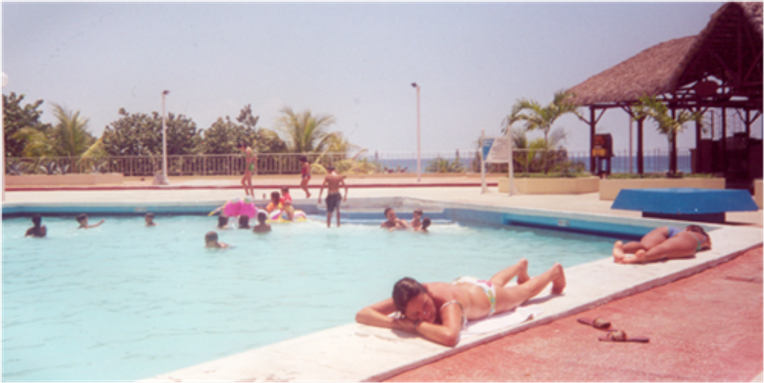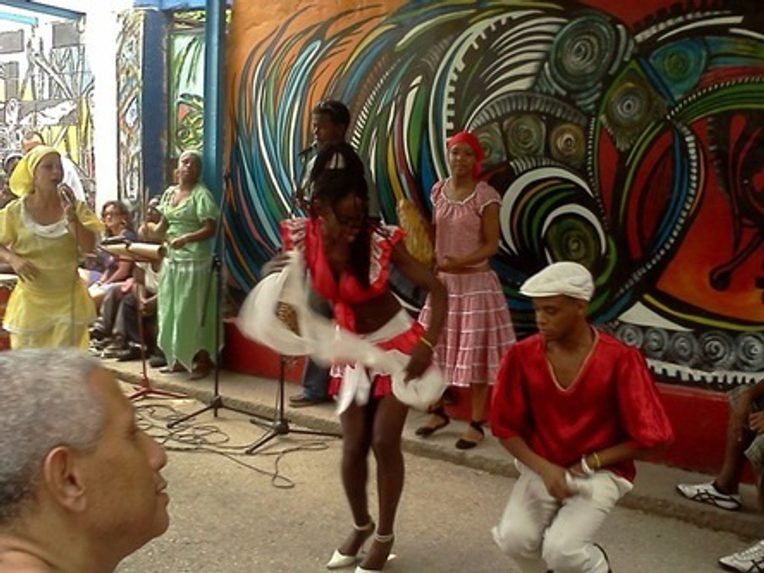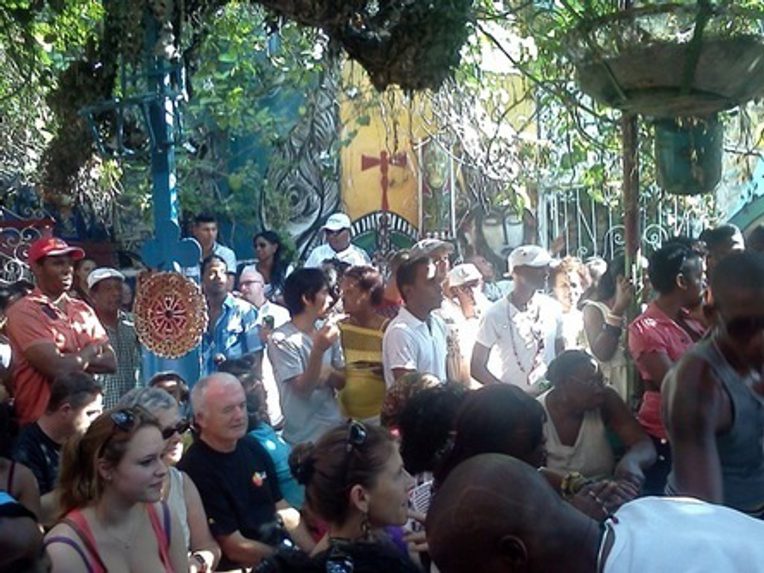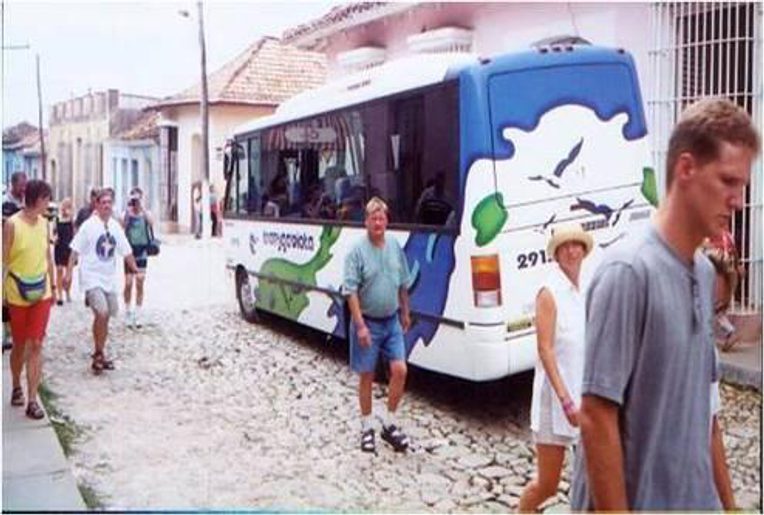This post builds on the research article “T/racing Belonging through Cuban Tourism,” which was published in the August 2013 issue of the Society’s peer-reviewed journal, Cultural Anthropology.

Related Articles
Cultural Anthropology has published a number of articles that focus on racializing practices and difference, including several other articles in this issue on race, Michael Montoya's "Bioethnic Conscription: Genes, Race, and Mexicana/o Ethnicity in Diabetes Research" (2007), and Aisha Khan's "Journey to the Center of the Earth: The Caribbean as Master Symbol" (2001).
Cultural Anthropology has also published a number of articles on tourism, including David McDermott Hughes' "Third Nature: Making Space and Time in the Great Limpopo Conservation Area" (2005), Oren Kosansky's "Tourism, Charity, and Profit: The Movement of Money in Moroccan Jewish Pilgrimage" (2002), and Alyssa Cymene Howe's "Queer Pilgrimage: The San Francisco Homeland and Identity Tourism" (2001).
About the Author
(adapted from department website)
L. Kaifa Roland is an Assistant Professor of Anthropology at the University of Colorado Boulder. Her research is in the area of cultural anthropology with specific interests in tourism, national identity, racial and gender constructions, popular cultural practices, and critiques of capitalism. With a regional focus on the Caribbean and the broader African Diaspora, she has conducted extensive field research in Cuba. She is the author of Cuban Color in Tourism and La Lucha (2011). More information about Roland's projects can be found her website.
Related Media



Interview with L. Kaifa Roland
Adonia Lugo: The concept of "t/race" presents a way to write academically about the enduring social power of race discourses while acknowledging one's own understanding that phenotypical race is a myth. Do you think that's an accurate reading?
L. Kaifa Roland: I'm playing with words a little, yes. I recalled reading Derrida's discussion of the trace, whose lingering influence he illustrated by striking out the word "erase." I thought, why are we still talking about race if we all agree that it isn't a category with scientific standing? So I decided in this article to play with the trace concept linguistically, there's something, some residue in this concept of race. When we teach undergrads especially, they say, oh ok, well if race is a construct, it doesn't matter. And we have to remind them that just because we acknowledge that it is a cultural construct doesn't mean it isn't an active concept in the world. I thought the notion of "t/race" would be helpful to explain this nicely to non-anthropologists, too.
AL: You write that "'race' is not about skin color; it is about the hierarchized valuation of difference" (414). Could you speak a bit about the concept of difference and what work it does for you?
LKR: I was playing with Derrida's "différance" there too. I started from Edward Said's Orientalism; what makes something or someone an "other," where is that line in the sand where when I say "us" I mean this group of people and reference to another group means “them”? The things that can differentiate can be very minor things: the color of one's eyes, the texture of one's hair. That is where the concept of race started, not just with skin color, but with difference. We held onto these little tiny lines in the sand, and said ok, that group's skin is what differentiates them as a people, and that grew into signifying something more, where people are denied or granted certain rights based on these differences. Those differences become markers of where people fall in the global division of labor; who's supposed to be cleaning the hotel room, who's supposed to be occupying the room. A tiny aspect of difference is being magnified and we say that this is an “other:” we are better than them, or they are better than us. This is the way race works. It magnifies difference; race is doing that work of hierarchization. I like to think of Bob Marley's song "War": "until the color of a man's skin is of no more significance than the color of his eyes." If eye color does not mean much, why have we put so much weight on skin color? Difference refers to hierarchy, power, and who determines what physical variations mean. Difference is not natural; difference is done, created, enacted.
AL: The article illustrates the flexibility of racial categories in a space where tourists are seekers of novel experience and hosts are sellers of a structured presentation of cultural traits and performances. The devaluation of blackness is challenged by "cultural whitening," where people like yourself transcend the normal Cuban divides. As an ethnographer, you also spent time outside of tourist zones. Did your interlocutors make moves to validate your presence through re-racing you, so to speak?
LKR: It depends on how close people got to me. In the context of the terms I use in the article, I would have been mulaticized in my partial belonging. In some cases, neighbors may have had cultural capital on their minds, that maybe they thought they would get some benefit from associating with me as a foreigner. Whereas other people who got to know me, would sit down and talk to me and learn about my family and what my life was like in the United States. I got the sense that they forgot about me being a foreigner because I just became “normal.” This came up while doing the research, when interviewees would get nervous that the police were nearby because they were used to being harassed when talking with a foreigner. I had to remind them that the police couldn’t tell I was foreign by looking at me, then I would watch them relax as they watched that dynamic play out. As I wrote in my book, Cuban Color in Tourism and la Lucha, some people always saw me as foreign and would continue speaking to me in English though I was responding to them in Spanish. Others would see me as being so much like them that they would forget about my foreign status and start speaking rapidly or assume that I knew things. I'd have to remind them that no no no, I'm a foreigner, I am not a Cuban woman so you have to slow down and explain things to me.

Discussion Questions
1. What is an indicator of difference in your classroom? Experiment with dividing the class based on the type of bag students carry, or another material marker besides physical appearance. What are the students' impressions of this sort of manufactured difference?
2. Dr. Roland presents the relationship between the tourist and the host as one of controlled access to difference. What are some experiences students have had with travel and tourism, even within their own cities? What gatekeeping practices did they encounter from the people offering them access to an exotic experience?
3. The concept of the "t/race" highlights the lingering power racial discourses have in contemporary society. What are some examples that show how we are not, truly, "post-race"?